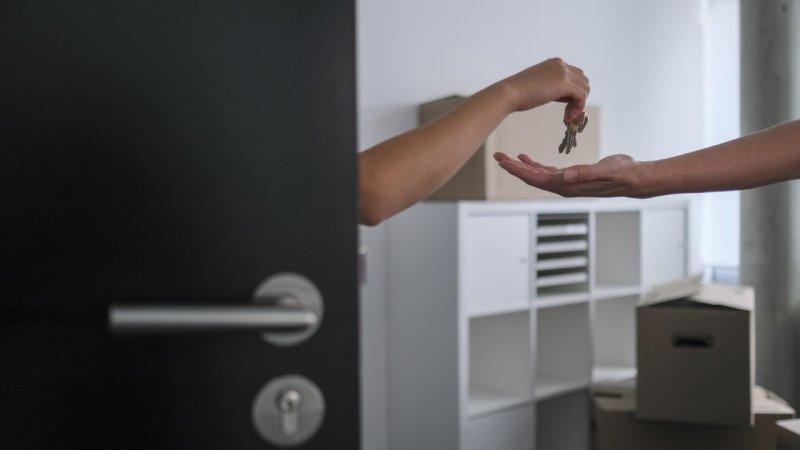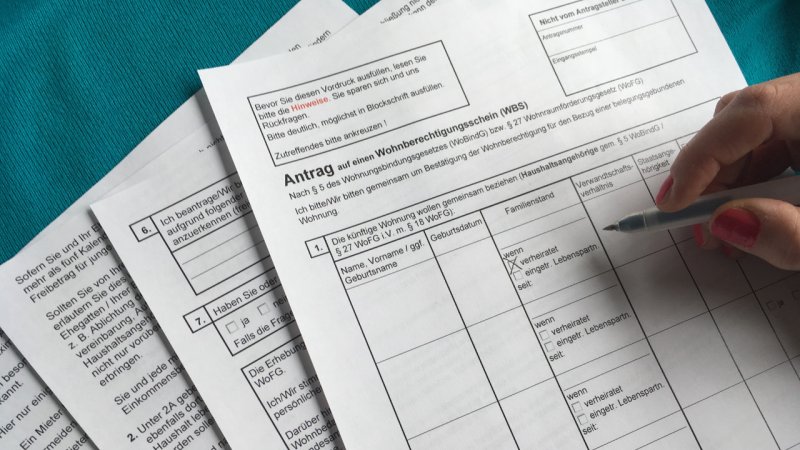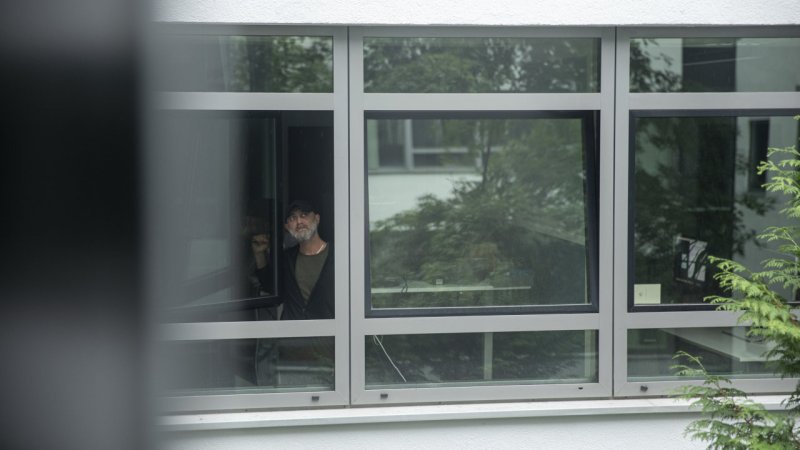
A rental contract is the legal basis for transactions between a landlord and a tenant. Here, you can learn what to look out for when signing a rental agreement.
The rental contract is a written agreement between the tenant and the landlord stipulating that you may use the flat or room in a shared flat. In the case of a temporary flat, the rental contract also states how long the flat or room will be rented for.
The following information is essential in the rental contract:
- Details of the landlord (name and address) and the tenants (name, current address, date of birth)
- The exact address of the flat
- Exact location if the flat is in a flat block (e.g. 2nd floor on the left)
- the amount of the rent
- Information on the ancillary costs and their amount
- The exact time the rent must always be paid (e.g. ‘The rent must be paid in advance by the third working day of the month at the latest’)
- Information on rent adjustment, e.g. contracts with graduated rents (“Staffelmietvertrag”) or index-linked rental agreements (“Indexmietvertrag”)
- The rental period (limited or unlimited)
- The size of the flat in square metres
- An indication of which (other) spaces belong to the flat (e.g. cellar, garage, balcony)
- Rules concerning the use of the flat, e.g. whether pets and/or smoking are permitted in the flat
Good to know: Many rental contracts also include house rules. These rules help to ensure that all tenants can coexist well together. For example, the house rules stipulate when the so-called “Ruhezeiten” or “quiet times” are or how the hallway should be used and cleaned.
If the house rules are included in the rental contract, you must sign them when you sign the contract. Sometimes, the house rules are displayed in the hallway, and then the rules apply even without a signature. If you repeatedly violate the house rules, your landlord can give you notice.
Please note: It is essential to read the contract carefully. If you are unsure, ask at a counselling centre, such as a tenants‘ protection association or tenants’ association. These organisations can help you with advice and legal support. You must become a member and pay a membership fee of around €50 a year to use their services. You can find a tenant protection organisation near you at mieterbund.de.
Regarding rental contracts, you should consider the distinction between net (or cold) rent and gross (or warm) rent. The net rent only covers the costs of the flat. However, there are also operating or ancillary fees, which include water costs, rubbish collection, and often heating costs and similar operating expenses. The gross or warm rent is therefore noteworthy, as this describes the amount you actually have to pay. The rental costs must be itemised in the rental agreement.
Good to know: These costs do not include the electricity costs for your flat and sometimes also not the gas costs if it’s used for heating and cooking. You will have to take out electricity contracts and, if applicable, gas yourself and pay additional fees. The same applies to the telephone and Internet services.
There are different types of rentals with different contractual conditions, namely concerning rent increases. The rental agreement specifies which type of rent applies to the flat or shared room. Here are the most essential types of rent:
- Regular rent: This is the most common form of rent. The rent generally remains stable but can be increased under certain legal conditions, e.g. in the event of a general adjustment to the rent index or following modernisation. The increase is limited and must be justified by the landlord.
- Index rent (“Indexmiete”): With an index-linked rent, the rent is linked to the development of the general price level, which is determined by the consumer price index (CPI). If the cost of living rises, landlords can increase the rent accordingly, once a year. An increase is only permitted if the index has actually changed.
- Graduated rent (“Staffelmiete”): With a graduated rent, it is already agreed in the rental contract that the rent increases in a specific amount with a particular frequency (e.g. annually). You, therefore, know from the outset when and by how much the rent will increase. These increases must be clearly defined in the contract so that no additional rent increases are possible outside these scales.
- Subletting (“Untermiete”): In the case of subletting, part of the flat or the entire flat is sublet from a primary tenant to a subtenant. This can apply, for example, to individual rooms in a shared flat or as a sublet/exchange of the entire flat if the primary tenant is temporarily absent. The landlord must generally agree to a sublet. The primary tenant is still responsible for the flat. And the subtenant pays the rent to the primary tenant.
Each of these types of tenancy has specific advantages and disadvantages. It is, therefore, important to fully understand the terms of the rental contract.
Operating and ancillary costs are additional costs that are incurred in addition to the basic rent (“Kaltmiete”). They cover the expenses necessary for the operation and maintenance of a residential building. These costs are often paid monthly as a lump sum or advance payment together with the rent and are itemised at the end of the year in a utility bill. Typical service charges include:
- Water and sewage costs
- Refuse collection
- Street cleaning
- Costs for the caretaker
- Building insurance
- Heating and hot water (if included in the warm rent)
- Communal electricity (for stairwell, cellar, outdoor lighting)
Sometimes heating and hot water are billed separately, especially if you have to purchase electricity and/or gas yourself from a supplier. In this case, they are not included in the service charges, and you pay them directly to the supplier. It is important to clarify in the rental contract exactly which costs are included in the service charges.
The deposit is a security payment that you, as a tenant, transfer to the landlord at the beginning of the tenancy. It serves to protect the landlord in the event of damage to the flat during the tenancy or if you fail to pay rent. The deposit may not exceed 3 months' rent. The exact amount of the deposit and the details of the account into which it is transferred are specified in the rental contract. You may pay the deposit in 3 monthly instalments, whereby the first instalment or the entire deposit should be paid by the time you move in at the latest.
At the end of the tenancy, if you leave the flat without causing any damages, the deposit will be returned to you. Landlords may only withhold part or all of the deposit if there are justified claims, such as repairs or outstanding rent payments. Tagesschau.de has compiled an overview of when the deposit may be withheld on their website.
Several people can be named as tenants in the rental contract, for example, you and your partner. Both of you are then jointly liable for the rent. It is essential that all persons who live in the flat and assume responsibility are named in the rental contract. You are then jointly and severally liable - this means that all persons named in the rental contract are liable for the total rent, even if only one of them fails to pay. Also, the right of contract cancellation only applies jointly.
Minor children are not parties to the contract, so of course, they do not have to sign the rental agreement or be named in it. However, the number of children can be listed in the contract.
Good to know: Anyone who allows other people to move into the flat and does not obtain the landlord's consent beforehand risks a warning or, in the worst case, termination of their contract.
Before you sign the rental contract, you should check the following points:
- Rent and service charges: Is the amount of rent and service charges transparent and fair?
- Deposit: How much is the deposit? It must not exceed 3 months' rent.
- Notice period: How long is the notice period for contract cancellation?
- Special features: Are there any special rules or clauses (e.g. renovation obligations)?
Good to know: It is essential to read the contract carefully. In particular, compare how expensive the flat is compared to the standard local rent. Many landlords increase the rent for a flat significantly when new tenants move in. To prevent housing from becoming unaffordable in this way, some German cities have had a rent cap in place since 2015 to prevent excessive rents. This stipulates that the rent for new rentals may not be more than 10 per cent above the local comparative rent.
However, there are many exceptions to this rule. In fact, it was established in 2024 that the rent freeze had hardly any effect. You need to ensure that your landlord complies with the rent freeze and can take legal action if necessary.
You can find out whether there is a rent freeze in your city on the Finanztip website. You can also seek advice from organisations such as the “Mieter*innenschutzbund” or “Mieter*innenverein” - not only on the rent freeze but also on all other questions relating to your rental contract. These organisations can help you with advice and legal support. You have to become a member and pay around €50 a year to benefit from their services. You can find a tenant protection organisation near you at mieterbund.de.
Register at the Registration Office: You must register your new address at the Registration Office within 2 weeks. This office is often also called the “Einwohnermeldeamt”, “Bürgeramt”, or “Bürgerbüro”. As appointments are hard to find, you should try to find one soon. You can find more information on registration in our chapter “Registering your place of residence”.
Notifying authorities of the change of address: Inform the Immigration Office of your new address as soon as possible. If you are still in the asylum procedure, you must also inform the BAMF of your new address immediately. Otherwise, you may miss essential letters from the BAMF. Also, inform all other authorities with which you have dealings (Jobcenter, Social Welfare Office, Tax Office, etc.) and your bank, your employer (if applicable), as well as your insurance companies, etc., of your new address.
Sign service contracts: If the landlord does not supply gas or electricity, you must sign contracts with the suppliers independently. You can find more information in this regard on our chapter ‘Renting a flat’.
Set up rent payments: Make sure that the rent is transferred on time, for example, by setting up a standing order (on your bank account) so that the rent is automatically debited from your account on a fixed date.
Set up a forwarding order: If you want to make sure you don't miss any letters, you can set up a forwarding order with Deutsche Post and Pin Mail AG for a certain period of time.
However, you will have to pay for it.
Registering for the TV licence fee: The state licence fee is also billed directly to you as a tenant for each household. If you have registered with the registration office, you will automatically receive a letter by post to register with the licence fee service. You can learn more about it on our topic page, ‘Broadcasting licence fee’.
In addition to information on rental costs, rent increases, rental period, notice period and deposit, the following aspects are essential in the rental contract:
Renovation and maintenance obligations: The rental contract must stipulate who is responsible for the maintenance of the flat. As a rule, landlords are responsible for major repairs. However, there are often clauses on so-called cosmetic repairs that impose certain obligations on tenants (e.g. regular painting). These clauses must be fair and legally permissible.
House rules: Many rental contracts contain house rules that set out the rules for living together in the building. These include points such as:
- So-called “quiet hours” or “Ruhezeiten“
- Cleaning obligations (e.g. stairwells, footways)
- Use of common areas (e.g. laundry room, cellar)
Subletting: If you want to sublet the flat or a room, you generally need the landlord's consent. They can only refuse permission to sublet in exceptional cases - for example, if the flat is overcrowded due to subletting, i.e., too many people would be living there. When exactly a flat is considered to be overcrowded varies from state to state. As a rule of thumb, however, you can remember that a room of at least 12 square metres should be available for each adult and two children up to the age of 13.
If the right to sublet is not expressly stated in the rental contract, a written request is needed. You can find a template for it on the Berlin Tenants' Association website. Here, you will also find a template for a subletting agreement that you should conclude with your subtenant.
Your landlord can demand a subletting surcharge for subletting because, for instance, the general operating costs of the building (electricity, rubbish collection costs, etc.) increase.
Good to know: If you take in close family members - i.e. your spouse, children or parents - this does not count as subletting. You, therefore, do not need to obtain permission from your landlord.
Keeping pets: Many rental contracts explicitly regulate whether and which pets may be kept in the flat. As a rule, the landlord's express consent is required, especially for larger animals such as dogs and cats. Small animals such as hamsters or fish are usually permitted.
As a tenant, you can usually terminate your rental contract at any time by informing your landlord 3 months before the desired date for ending the contract (“Kündigungsfrist” or ‘notice period’). This cancellation must be made in writing: You write a letter to the landlord explaining that you wish to terminate the tenancy on a specific date. Important: You must sign the cancellation letter.
The written and signed cancellation letter must reach the landlord no later than the third working day of the month, which is to be counted as the first of the 3 months. In some cases, the notice period is shorter. You can find the notice period that applies to you in your rental contract. You can create a cancellation letter free of charge on the Immobilienscout website.
Please note: If you have concluded a fixed-term rental contract, i.e. you have agreed to a fixed term for your tenancy with your landlord, you cannot usually terminate it before the end of the term. However, many fixed-term rental contracts are not legally effective. In such a case, you can still terminate the contract within the statutory notice period of 3 months. The Consumer Advice Centre (“Verbraucherzentrale”) or a tenant protection association can tell you whether your fixed-term rental contract is legally valid. Usually, you must join a tenant protection association before receiving advice and support. As a member, you have to pay an annual membership fee. You can find a tenant protection association nearby at mieterbund.de.
Tenants are well protected in Germany. Your landlord, therefore, needs a good reason to terminate your rental contract. Cancellation by landlords is possible under the following circumstances:
- Your landlord needs the flat for themselves or their family. This is called ‘personal use’. However, they must prove they need the place for personal use, and if you have good reasons for staying in the flat (e.g. serious illness), your landlord cannot usually give you notice. If you actually have to leave the flat, your landlord must give you enough time to look for a new flat. How much time is considered “enough” depends on the length of your tenancy to date.
- Your landlord wants to demolish the house. In this case, however, you must be given enough time to look for a flat. How much time is considered “enough” depends on the length of your tenancy to date.
- You have not paid your rent for 2 months. In this case, they can even terminate your tenancy without notice. This means that your landlord can demand that you leave the flat immediately.
- You have repeatedly disturbed the peace in the building, e.g. harassed or insulted neighbours. In this case, your landlord must first give you an official warning. If you then cause problems again, they can terminate your tenancy without notice.
- You have sublet your flat without authorisation, and your landlord can prove it. In this case, termination without notice is possible, too.
If your landlord terminates your rental contract, be sure to seek advice from a tenant advice centre. Many cancellations are not lawful, and you can legally defend yourself against them. You can contact the Consumer Advice Centre (“Verbraucherzentrale”) or join a tenants‘ protection association or tenants’ association. These organisations will help you with advice and legal support. You have to become a member and pay around €50 a year. You can find a tenant protection organisation nearby at mieterbund.de.
If you need advice before signing your rental contract or feel that your rental contract is unfair, you can get support from a tenant protection association or tenants' association. You usually have to become a member of these organisations and pay an annual membership fee (approx. €50), but in return, you will receive comprehensive advice and legal assistance. You can find a tenant protection association nearby at mieterbund.de.
Never pay before you have signed the rental agreement. Make sure that you agree to all the conditions in the contract before signing.
Find a Tenant Protection Association nearby and seek help.





